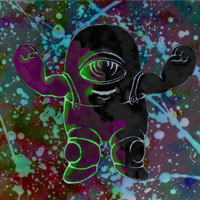Hey. You. This is for us. That means it's for you too. And you. Oh, yeah. And especially you. |
- Getting Started
- Help
- Master Lists
- Useful Links
- Features
[Caelum's Scrapbook] Use Your Words.
(This is a thread from Mizahar's fantasy roleplay forum. Why don't you register today? This message is not shown when you are logged in. Come roleplay with us, it's fun!)-

Caelum - The best way out is through.
- Posts: 1961
- Words: 1093768
- Joined roleplay: March 18th, 2010, 10:27 pm
- Location: Riverfall
- Race: Ethaefal
- Character sheet
- Storyteller secrets
- Scrapbook
- Journal
- Plotnotes
- Medals: 11
-


-


-


-


-


[Caelum's Scrapbook] Use Your Words.
Avatar CreditsMy lovely Avatar was drawn and created by the most awesome Nivel
I will be handling all Ball related posts on Mondays @ 1800 my time *
Graders Please Note :
I will be handling all Ball related posts on Mondays @ 1800 my time *
-

Ball - Ser Ball -- Pycon Knight of Syliras
- Posts: 1323
- Words: 460478
- Joined roleplay: January 31st, 2012, 4:52 pm
- Location: Syliras
- Race: Pycon
- Character sheet
- Storyteller secrets
- Scrapbook
- Journal
- Plotnotes
- Medals: 3
-


-

-

Caelum - The best way out is through.
- Posts: 1961
- Words: 1093768
- Joined roleplay: March 18th, 2010, 10:27 pm
- Location: Riverfall
- Race: Ethaefal
- Character sheet
- Storyteller secrets
- Scrapbook
- Journal
- Plotnotes
- Medals: 11
-


-


-


-


-


-

Caelum - The best way out is through.
- Posts: 1961
- Words: 1093768
- Joined roleplay: March 18th, 2010, 10:27 pm
- Location: Riverfall
- Race: Ethaefal
- Character sheet
- Storyteller secrets
- Scrapbook
- Journal
- Plotnotes
- Medals: 11
-


-


-


-


-


-

Caelum - The best way out is through.
- Posts: 1961
- Words: 1093768
- Joined roleplay: March 18th, 2010, 10:27 pm
- Location: Riverfall
- Race: Ethaefal
- Character sheet
- Storyteller secrets
- Scrapbook
- Journal
- Plotnotes
- Medals: 11
-


-


-


-


-


-

Caelum - The best way out is through.
- Posts: 1961
- Words: 1093768
- Joined roleplay: March 18th, 2010, 10:27 pm
- Location: Riverfall
- Race: Ethaefal
- Character sheet
- Storyteller secrets
- Scrapbook
- Journal
- Plotnotes
- Medals: 11
-


-


-


-


-


[Caelum's Scrapbook] Use Your Words.
Avatar CreditsMy lovely Avatar was drawn and created by the most awesome Nivel
I will be handling all Ball related posts on Mondays @ 1800 my time *
Graders Please Note :
I will be handling all Ball related posts on Mondays @ 1800 my time *
-

Ball - Ser Ball -- Pycon Knight of Syliras
- Posts: 1323
- Words: 460478
- Joined roleplay: January 31st, 2012, 4:52 pm
- Location: Syliras
- Race: Pycon
- Character sheet
- Storyteller secrets
- Scrapbook
- Journal
- Plotnotes
- Medals: 3
-


-

-

Caelum - The best way out is through.
- Posts: 1961
- Words: 1093768
- Joined roleplay: March 18th, 2010, 10:27 pm
- Location: Riverfall
- Race: Ethaefal
- Character sheet
- Storyteller secrets
- Scrapbook
- Journal
- Plotnotes
- Medals: 11
-


-


-


-


-


-

Caelum - The best way out is through.
- Posts: 1961
- Words: 1093768
- Joined roleplay: March 18th, 2010, 10:27 pm
- Location: Riverfall
- Race: Ethaefal
- Character sheet
- Storyteller secrets
- Scrapbook
- Journal
- Plotnotes
- Medals: 11
-


-


-


-


-


-

Caelum - The best way out is through.
- Posts: 1961
- Words: 1093768
- Joined roleplay: March 18th, 2010, 10:27 pm
- Location: Riverfall
- Race: Ethaefal
- Character sheet
- Storyteller secrets
- Scrapbook
- Journal
- Plotnotes
- Medals: 11
-


-


-


-


-


Who is online
Users browsing this forum: No registered users and 0 guests